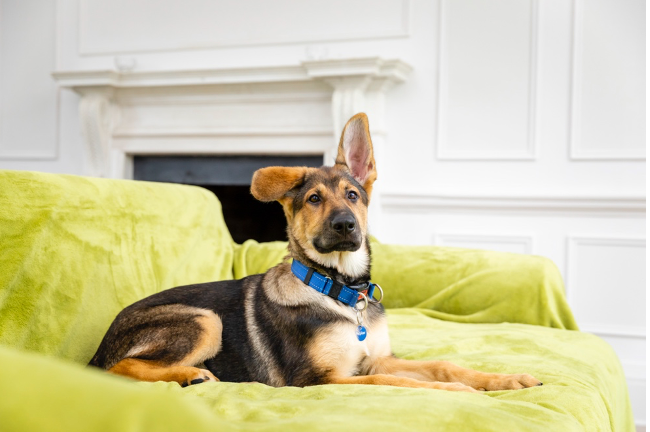Battersea Dogs and Cats Home welcomes new government Action Plan for Animal Welfare following visit from Environment Minister, George Eustice
Battersea Dogs & Cats Home | Press Release • May 20, 2021
Battersea welcomes Government action plan recognising animal welfare

Leading animal welfare charity, Battersea, today (12 May) welcomed new Government plans looking to improve the lives of animals in the UK and abroad. During a visit to Battersea’s iconic London centre, Secretary of State for Environment, Food and Rural Affairs, Rt Hon George Eustice MP, launched the Action Plan for Animal Welfare to improve the welfare of animals in the UK and abroad.
The Action Plan will see several new laws and non-legislative changes coming into effect over the coming months. The first of these is a new Animal Welfare (Sentience) Bill, which recognises animals as sentient beings, which will be introduced to Parliament tomorrow (13 May) and will be followed by other measures that include; prohibiting live animal exports, cracking down on pet theft and puppy smuggling, and introducing compulsory microchipping for owned cats.
Battersea’s Chief Executive, Peter Laurie, said: “Battersea is excited by the new Action Plan for Animal Welfare, and the difference it can make. Year round, we see first-hand the impact of puppy smuggling, take in hundreds of stray dogs and cats, and support owners who have lost their much-loved pets.
Every dog and cat deserves to be safe from harm and this means clamping down on those trading animals illegally and in poor welfare conditions, being proactive to protect owners from the devastation of having their pet lost or stolen, and doing everything we can to reunite them.
Our pets are not only sentient beings, but much-loved family members and we support any measures that will protect them from unnecessary suffering, and reassure dog and cat owners, both now and in the future.”
Battersea frequently takes in dogs that have likely been bred in poor conditions before being sold on to unsuspecting owners. On his visit to Battersea, the Environment Secretary met Phoenix, a 6-month-old Border Terrier, who arrived at Battersea after he was left at a London property by a puppy dealer. His microchip showed that he had been bred in Northern Ireland before being supplied to a dealer to sell on, Puppy imports have soared to meet demand under lockdown, and Battersea hopes that increasing the age a puppy or kitten can be imported into the UK to six months will ensure a crackdown on those who put profit before animal welfare.
Battersea is also pleased to see the Government’s plans to introduce compulsory cat microchipping. 57% of cats arriving at Battersea last year were not microchipped, making it extremely difficult for them to be reunited with their owners. These include Bruno, a 3-year-old Domestic Short Hair cat, who arrived at Battersea as a stray last week. As he isn’t microchipped Battersea has been unable to find his owner and will be seeking a new home for him in the coming weeks.
Battersea welcomes other measures outlined in the Action Plan for Animal Welfare including a crackdown on pet theft and a proposed ban of remote-controlled shock collars which cause unnecessary suffering. The charity now looks forward to working with the Government on the detail surrounding these measures, and bringing forward the legislation required, to ensure we create a world-leading environment for companion animals in the UK.


